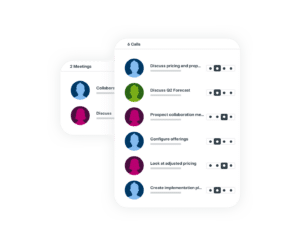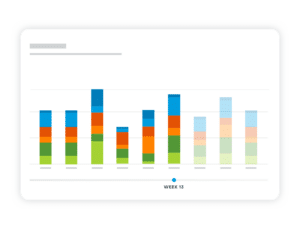How to Leverage Technology in Hybrid and Remote Work
The pandemic has forced many businesses to recalibrate how and where we work. It has reshaped how business leaders think, how staff wants to work, and customer expectations. Technology for collecting, managing, and advancing customer interactions is vital for all businesses. There is a continuous need to rethink and adjust business strategies and tactics to adapt to the new world of work.
Despite the devastating disruption by the pandemic, there have been some positive impacts on the overall customer engagement. And the most important of these is a recognition of the critical importance of empathy. This has resulted in a renewed focus on the bigger picture. For customers, it’s more important to have their problem resolved than worry about if they hear background noise on a call. While we’ve traditionally seen customers hold the upper hand in demanding increased service levels, this has changed as global supply chain disruptions leave customers with substantial delays or shortages.
The inability of many businesses to meet service level agreements (SLAs) is tempered with a dose of realism. Customers recognize scenarios that are often beyond the normal limits of a company’s control.
Here are three ways businesses can use technology to maximize the value and productivity of a hybrid and remote workforce:
1. Ensure Your CRM Tools Are Fit for the Purpose
Now more than ever, modern customer relationship management (CRM) systems must support the ability to stay close to existing customers and help secure new prospects. Businesses need to use a CRM that incorporates artificial intelligence (AI) and machine learning (ML) into its functionality to augment staff knowledge and help prioritize workload focus.
CRMs that use sentiment analysis can automatically redirect sensitive incoming cases to more skilled or senior customer service/support agents. More importantly, your CRM should remove blind spots, enable rich information on the customer, and reduce blind spots and roadblocks. The AI should be smart enough to automatically enter information into the system, freeing your teams from manual data entry to focus more on customer interactions.
2. Capture, Manage and Analyze Customer Data
A data-driven approach is critical to maximizing sales, customer satisfaction, and conversion.
Data growth is exponential, and the need to digest and make sense of the data has outstripped the human mind’s capabilities. Technology can quickly capture, analyze and draw valuable insights from many data points. AI tools in your CRM can expose hidden insights, and predictive capabilities can help your teams identify new trends and customer opportunities. Intelligent software can manage stock and supply orders with greater accuracy and reduce the need to discount excess or unwanted stock.
3. Embrace Automation
Any repetitive task that follows a set of steps that don’t change is a great candidate for automation. There are tools to do this affordably and unlock the potential for businesses of all sizes. Data entry, automation of tasks, data-crunching, and predictive analysis can all be easily handled by automation. This can free up teams to focus more on the business’s human side, such as customer interaction, innovation, collaboration, and empathy.
Technology is a powerful ally that enables you to maximize the value you get from your data and free up people to work on higher-value tasks. By choosing business systems that use AI, ML, and other assistive technologies, you can boost the capability and capacity of your teams so you can direct more focus on delighting your customers and less time wrangling data and administrative tasks.
This blog post is based on an article initially published on Inside Small Business.



